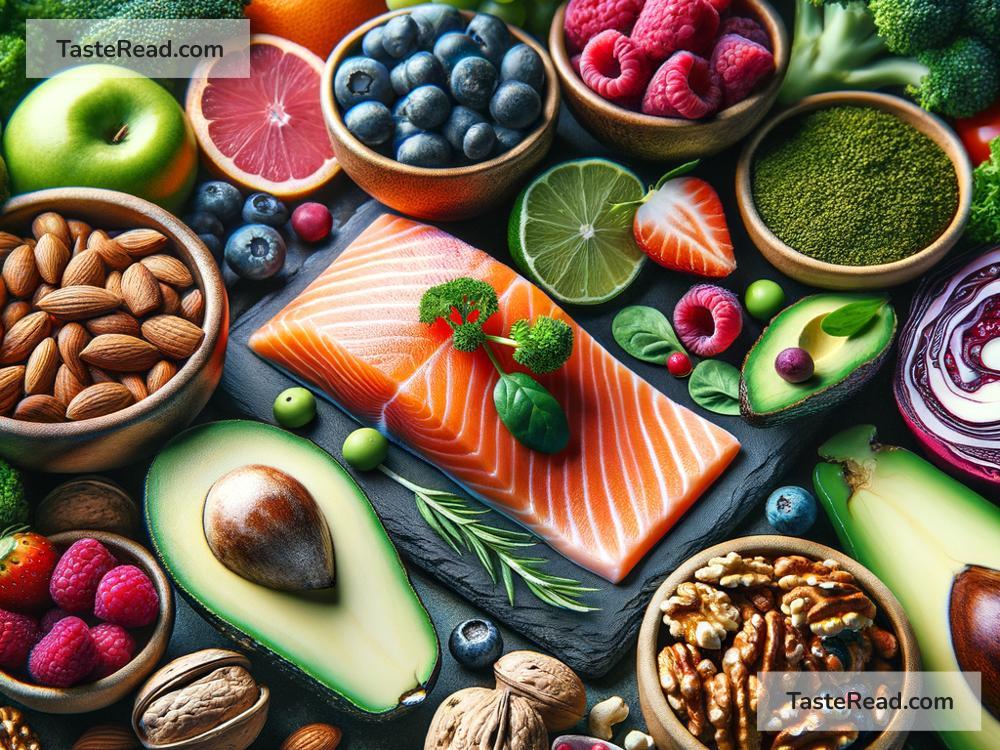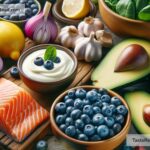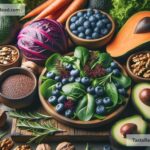Foods That Reduce the Risk of Eczema: Boost Your Skin Health Naturally
Eczema is a skin condition that causes dryness, itchiness, redness, and inflammation. If you or a loved one struggles with eczema, you know how uncomfortable and frustrating it can be. While medications and skincare routines are often recommended to manage symptoms, did you know that your diet plays a crucial role in reducing the risk of eczema flare-ups? That’s right! Eating the right foods can help promote healthy skin and lower inflammation in the body.
In this article, we’ll talk about foods that reduce the risk of eczema in simple terms, with tips and ideas to easily add them to your meals. By choosing food that nourishes your skin from the inside out, you’re giving your body the tools it needs to fight eczema naturally.
What Causes Eczema?
Eczema is believed to occur due to a combination of genetic, environmental, and immune system factors. It’s often linked to a hyperactive immune response that causes inflammation. Certain triggers—like allergens, stress, weather changes, or harsh chemicals—can lead to flare-ups. While eczema itself isn’t strictly caused by food, eating an anti-inflammatory diet can help calm the immune system and promote skin health.
Foods That Fight Eczema
The good news is that many foods can help soothe inflammation, support gut health, and give your skin the nutrients it needs to stay strong. Here are the top foods to consider adding to your diet:
1. Fatty Fish
Fatty fish, such as salmon, mackerel, sardines, and trout, are packed with omega-3 fatty acids. Omega-3s are powerhouse nutrients that reduce inflammation throughout your body, including your skin. They can help soothe eczema symptoms and make your skin more resilient.
How to eat fatty fish: Grill or bake salmon for dinner, add mackerel to salads, or try sardines on whole-grain crackers for a healthy snack.
2. Probiotic-Rich Foods
A healthy gut is key to managing eczema. Probiotics, found in foods like yogurt, kefir, sauerkraut, kimchi, and miso, help balance your gut bacteria and support the immune system. With a healthier gut microbiome, your skin may experience fewer flare-ups.
How to eat probiotics: Enjoy a small bowl of yogurt for breakfast, mix kimchi with rice dishes, or sip on a refreshing glass of kefir.
3. Fruits and Vegetables
Fresh fruits and vegetables are loaded with vitamins, antioxidants, and fiber—making them perfect for reducing inflammation and supporting overall health. Some of the best options for eczema include:
- Leafy greens (spinach, kale): Rich in vitamin E and antioxidants.
- Berries (blueberries, strawberries): Full of skin-protecting nutrients.
- Carrots and sweet potatoes: High in beta-carotene, which helps keep skin hydrated.
- Bell peppers: Packed with vitamin C to boost collagen and repair skin.
How to eat more fruits and veggies: Toss spinach and berries into a smoothie, roast sweet potatoes, or add colorful peppers to stir-fries.
4. Nuts and Seeds
Nuts and seeds, such as walnuts, almonds, chia seeds, and flaxseeds, are excellent sources of healthy fats and omega-3s. These fats help improve skin hydration and reduce inflammation.
How to eat nuts and seeds: Sprinkle chia seeds onto oatmeal, grab a handful of almonds for a snack, or mix flaxseed powder into smoothies.
5. Whole Grains
Whole grains like oats, quinoa, and brown rice are rich in fiber, which helps your gut function properly. A well-functioning gut is associated with fewer eczema symptoms. Whole grains also provide important minerals like zinc, which supports healthy skin.
How to eat whole grains: Swap white bread for whole-grain bread, have a bowl of oatmeal for breakfast, or make a simple quinoa salad.
6. Foods Rich in Vitamin D
Vitamin D is an essential nutrient that supports the immune system and reduces inflammation. Research has shown that low levels of vitamin D may worsen eczema symptoms. Foods rich in vitamin D include fortified milk, eggs, and cod liver oil.
How to get vitamin D: Consider drinking vitamin D-fortified milk, adding eggs to breakfast, or talking to your doctor about a vitamin D supplement if needed.
Foods to Avoid
Just as some foods help reduce eczema risk, others can trigger inflammation or worsen symptoms. Common culprits for eczema flare-ups include:
- Sugary snacks: Candy, soda, and processed treats can increase inflammation.
- Dairy (for some individuals): May worsen symptoms if you’re sensitive.
- Gluten (for some individuals): Linked to irritation in sensitive people.
- Highly processed foods: Chips, fast food, and frozen meals.
Keep track of which foods seem to trigger your eczema and try to limit them in your diet.
Final Tips for Eczema-Friendly Eating
- Keep a Food Diary: Pay attention to how your skin reacts to certain foods. Everyone is different, so tracking meals can help you find what works best for you.
- Stay Hydrated: Drinking enough water keeps your skin hydrated and healthy.
- Consult a Doctor or Dietitian: If you’re unsure about which foods are best for managing eczema, talk to a professional.
Conclusion
Managing eczema doesn’t have to be overwhelming. By focusing on anti-inflammatory, nutrient-rich foods like fatty fish, fruits, vegetables, nuts, seeds, and probiotics, you can help your skin stay healthy and reduce the risk of flare-ups. Combine a nourishing diet with good skincare practices, and you’ll be well on your way to calming eczema symptoms naturally.
By eating smart and caring for your body, you’re not just feeding your skin—you’re giving yourself the gift of health and comfort!


